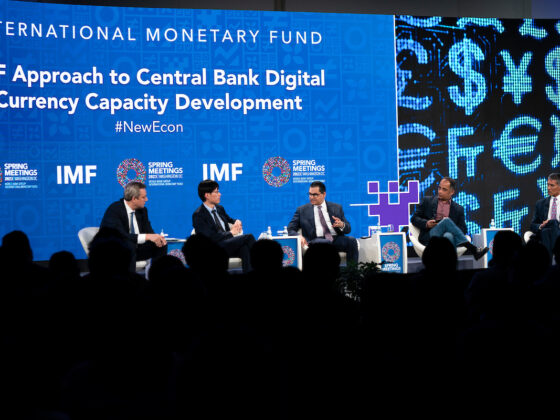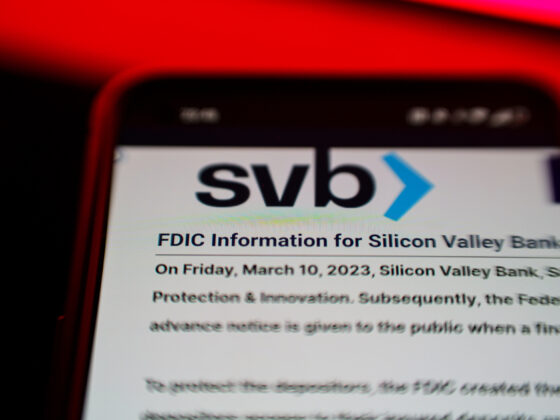European Central Bank President Christine Lagarde says that central banks have no interest in programming Central Bank Digital Currencies (CBDCs) with time limits or terms of use and the like, but that commercial banks certainly do.
“For us [central banks], the issuance of a digital currency that would be central bank money would not be programmable […] Those who can associate the use of digital currency with programmability would be the intermediaries — would be the commercial banks” — Christine Lagarde
Speaking at the Bank for International Settlements (BIS) Innovation Summit in March, Lagarde told her fellow panelists that a central bank would not be in charge of programming a digital currency.
“For us [central banks], the issuance of a digital currency that would be central bank money would not be programmable — would not be associated with any particular limitation, whether it’s in time, in type of use — that to me would be a voucher. It wouldn’t be a digital currency,” said Lagarde.
“Those who can associate the use of digital currency with programmability would be the intermediaries — would be the commercial banks.
“And that’s their business. They know how to do that, but if we are to say that a dollar is a dollar, whether it is cash or digital; or a euro is a euro, cash or digital — then for us [central bank] it cannot be programmable.
“It can be associated with conditionality, which is different, but not programmable,” she added.
Speaking at a high-level roundtable on CBDC in Washington, DC in October 2022, IMF deputy managing director and former People’s Bank of China (PBoC) deputy governor Bo Li said of CBDC programmability:
“CBDC can allow government agencies and private sector players to program — to create smart contracts — to allow targeted policy functions. For example, welfare payment; for example, consumption coupons; for example, food stamps.”
“By programming CBDC, those [sic] money can be precisely targeted for what kind of people can own and what kind of use this money can be utilized,” he added.
So, while Lagarde says that central banks have no interest in programming CBDCs, central banks around the world are indeed exploring programmability, even if the central banks themselves are not the ones doing the actual programming.
For example, the Reserve Bank of India is exploring a programmable CBDC with expiry dates.
And in Nigeria, “The individual and merchant wallets of the eNaira have different caps on daily transaction limits and the amount of eNaira that can be held in them, depending on their customer due diligence tier,” according to the BIS November 2022 report on CBDCs in Africa.
“People are concerned about their privacy and there is that anxiety of a big brother central bank having access to data — I think that’s not a very well-grounded concern” — Christine Lagarde
Back at the BIS Innovation Summit, the head of Europe’s central bank deflected people’s concerns away from the central banks over the issue of privacy.
“People are concerned about their privacy and there is that anxiety of a big brother central bank having access to data — I think that’s not a very well-grounded concern,” said Lagarde.
“A central bank has zero interest in using the personal data of the clients of the banks because […] the banks will be the natural intermediaries that will actually be operating what is legally required in terms of anti-money laundering, countering the financing of terrorism, and Know Your Customer regulatory requirements. A central bank is not going to do that.
“So, the central bank is not interested in data. A central bank does not want to monetize data,” she added.
Lagarde went on to deflect people’s privacy anxieties away from central and commercial banks towards big tech companies.
“Some of the big tech companies that are considering venturing in the field of stable coins in particular, have a great interest in using, collecting, handling, and analyzing data on a grand scale and monetizing it,” said Lagarde.
“I think the anxiety is misplaced in relation to the central bank and should be more concerned about what use is made of personal data and information by some of those large tech companies.”
“Banks, commercial banks — of course have a lot of data — and when we receive our reports, we know exactly how much we spent on food, how much we spent on traveling, how much we spent on entertainment because our banks are telling us, essentially. ” — Christine Lagarde
For Lagarde, data in the hands of big tech is concerning, but when that same data is in the hands of big commercial banks, those privacy concerns seemingly all but disappear.
“Banks, commercial banks — of course have a lot of data,” she said, adding, “and when we receive our reports, we know exactly how much we spent on food, how much we spent on traveling, how much we spent on entertainment because our banks are telling us, essentially.
“Those data are available, analyzed, and are of service.”
In her eyes, banks are more suited to handle people’s data in a responsible way, and that it all comes down to governance.
“It’s a question of governance,” she said. “How is it [data] used? Is it monetized? Is it then commercialized in some shape or form, but it is not in the business or the interest of a central bank to actually do anything — mess around with data.”
In the end; however, the European central banker confirmed yet again that a CBDC would never be as private or as anonymous as cash.
“A digital currency will never be as anonymous and as protecting of privacy in many respects as cash, which is why cash will always be around” — Christine Lagarde
“Is it [digital euro] going to be as private as cash? No,” she said.
“A digital currency will never be as anonymous and as protecting of privacy in many respects as cash, which is why cash will always be around.
“If people want to use cash in some countries or in some transactions, cash should be available.
“A digital currency is an alternative, is another means of payment and will not provide exactly the same level of privacy and anonymity as cash, but will be pretty close in terms of complete neutrality in relation to the data,” said Lagarde.
According to a World Economic Forum (WEF) Agenda blog post from September, 2017, the “gradual obsolescence of paper currency” is “characteristic of a well-designed CBDC.”













